M.M.Thomas was my eldest brother. He was born in 1916 and I was born in 1934. He was the first born in the family and I am the last born. With an age difference of 18 years, my memories of him are only as an active social worker. In those days when a degree was considered the ultimate status in society, instead of taking up a lucrative job - which was easy to find - he went down to the capital of Kerala and started an orphange; where he trained children in technological skill so that they may become useful and productive citizens. He was influenced both by the Indian Independence Movement (following the footsteps of our father M.M.Mammen) and by the Marxist Movement. My father, being in the publishing field, provided the impetus for Thomas to go over from mere passive social work to political activism; as he himself was involed in the Indian Independence struggle in cooperation with Gandhi while maintaining his personal committment to Christ . With such a Christian upbringing at home, our morals were always fixed in the Bible and in Christ's teachings. Even when some of us went to extreme groups, we still maintained the strong christian convictions and ideals. It was this christocentric upbringing confronted with the demands of a pluralistic society and secular politics that produced M.M.T.
He left for Geneva while my thought patterns were being formed, again under the same christian background with almost similar conditions. Soon I left for Africa and MM returned to India. I got involved in the missions is the Sudan and in Yemen. But as a young Christian my first understanding of the Sovereignity of God came through my brother. I could not at times explain the problems I was facing in my workplace and in the Christian field. One simple question put to me by my brother, echoes in my ears over and over again -and that put me in the right perspective. "Who is important? You or God?" Without that understanding I could not have survived. He learned it in the hard way when his beloved wife left him. Pennocha (Mrs. Elizabeth Thomas) died of cancer. This changed his life completely and came to know of a God who was sovereign. Instead being bitter he grew closer to God in a personal way and prompted him into action based on the royal law of love. His favorite poster that hang behind his old Kerala Charu Kasera was the picture of a cruicified Christ with the words. "If you don't love, who will?" His theology and actions were controlled by the centrality of the Crucified Christ and he transmitted this to all around.
He encouraged everyone to write. "Stop studying alone and start writing along with it" was his last advise to me when we met in San Jose in May 1996. We transfer our heritage and a life time of learning by putting our thought and experience in writing-which may otherwise be lost to the generations. This was his passion for many years. This impetus has created many of his students to be excellent communicators and theologians.
As the Madathilparampil Family remembers him - our Big Brother, we proudly present a life well worth lived. From a simple home in Kozhencheri he ascended the Sarvanjapeeda of theological world and rose to become the Governor of Nagaland. He refused to compromise his faith and ideals and left the honor and power the world gave him with greater dignity. He has fought the valiant battle, he has kept the faith, and now a crown of glory awaits him. It is difficult to give any tribute to my brother's life without acknowledging his vast contributions to society and Christianity. I thought this is best done by quoting a tribute rendered by the Princeton Seminary Faculty. No one could summarize his contributions better than this. I quote:
[A Tribute (May 15, 1916 - December 3, 1996) by Charles C. West, the Stephen Covwell Professor of Christian Ethics Emeritus at Princeton Theological Seminary, delivered this memorial minute at the February 26, 1997 meeting of the Seminary faculty As published in The Princeton Seminary Bulletin, Volume XVIII Number 2 New Series 1997, 208-210 ]
Between 1980 and 1987 Madathilparampil Mammen Thomas, known to almost everyone as MM was for a semester each of six years a guest professor of Ethics, Mission, and ecumenics at Princeton Theological Seminary. It was just before the John A. Mackay Chair in World Christianity was established. Otherwise, he would certainly have been its first incumbent . He taught such courses as The Gospel in a Pluralistic World; The Church in Mission and Unity; Christian Social Ethics in Asian Perspective; and above all, The Ecumenical Movement: Its Past, Its Present, and Its Future. To say that he taught these subjects is, however, hardly inadequate. He was the ecumenical movement in our midst. He embodied the world church mission and, through his teaching presence, made us a part of it.
M.M.Thomas was born May 15, 1916 to a devout Mar Thoma Christian family in Kerala, South India. In that church, with its Syrian Orthodox liturgical tradition and its evangelical piety, his christocentric spirituality took form. It was the beginning of a life long adventure, a living encounter with Hindu faith and practice, especially that of Gandhi, on the one side and with Communist commitment and ideology on the other. At one point in his youth, he applied for ordination in the Mar Thoma Church and for membership in the Communist Party. The Church rejected him because of his Marxist leanings of his social ethics; the Party rejected him because of his Christian faith. As it has turned out, the Communists were right and the Church was mistaken. He became, with only a college degree, a self educated theologian, in later life a dialogue partner with the major Christian scholars of his day. At the same time his social ethics, though deeply committed to the struggle of the poor for justice and humanity, broke sharply with the total claim of Marxist-Leninist ideology and Communist policy. But the heart of his ministry was ecumenical study and action, where spirituality, theology, ideology, and social conscience met in Christian witness to a world in revolution.
The vehicle of his ministry was the ecumenical movement, in India and abroad. MM was first secretary of the Youth Christian Council of Action in his native Kerala, then Student Christian Movement secretary in Madras, and Youth Secretary of the Mar Thoma Church. From 1947 to 1952 he served on the staff of the World Student Christian Federation in Geneva, with special emphasis on Christian political witness. He took part in the First Assembly of the World Council of Churches in 1948 and in the formation of the Council’s Department of Church and Society, of which he became an active member and chairman from 1961 to 1968. In this capacity he also chaired the World Conference on Church and Society at Geneva in 1966. From 1968 to 1975 he served as Chairman of the Central Committee of the World Council of Churches itself, guiding it through some of the stormiest years of its history. Through the power of his thought, the breadth of his vision, and the genius of his diplomacy, he influenced the mind and policy of the ecumenical movement more than any other person save its architect, W.A.Visser’t Hooft. The honorary doctorate conferred on him by the University of Uppsala in 1978 was a belated recognition of the status he had already earned.
The centerpiece of M.M.Thomas’ work was, however, in India itself. Returning from Geneva in 1952, he threw himself into social work and joined with India’s leading theologian, P.D.Devanandan, in 1957 to form the Christian Institute for the Study of Religion and Society, which he served first as Associate Director and then, upon Devanandan’s death, as Director until his retirement in 1976. Over these years the Institute poured out literature for the guidance of both church and society in India on social policy, cultural encounter, Christian-Hindu relations, political analysis, family problems, and ecumenical affairs. This literature was usually the product of study groups composed of some of the best minds of India, working intensely to produce something close to consensus report, which was then edited and published under the names of Thomas and Devanandan. We will never know how much of these reports was M.M.’s own work. He plowed his genius into the common process and made it fruitful. This did not prevent him, however from producing a large and diverse literature of his own, in his native Malayalam and English, on themes as diverse as Man in the Universe of Faiths; Secular Ideologies and the Secular Meaning of Christ; The Christian Response to the Asian Revolution; The Acknowledged Christ of Indian Renaissance, Meditations of The Realization of the Cross, and a series of Bible studies for the church in Kerala. It also did not prevent him from opposing, at serious risk of arrest and imprisonment, Indira Gandhi’s suspension of democracy in 1976. This led indirectly to his appointment as governor of the largely Christian state of Nagaland in North East India in 1991, a post in which he was as much a pastor as official until his resignation in 1993, in protest against central government corruption.
M.M.Thomas came to Princeton as a guest professor after his retirement from the Christian Institute. His contacts with the Seminary, however, are older and newer than this. In earlier years he sent two of his colleagues, E.V. Mathew and Saral Chatterjee, to study here on visiting fellowships. Over the years he has recommended many other students for our consideration, most recently from the Christian student fellowship that has had, and still has, its headquarters in Thiruvalla, Kerala home. At the time of his death on December 3, 1996, he was actively promoting three-year research project on mission and evangelism in India, for which he had recruited as advisers two members of the Princeton Seminary faculty. The ecumenical ministry that was his is ours as well. He was for a while our teacher and our friend. He remains our inspiration and our challenge.































 As Governor, receiving the salute
As Governor, receiving the salute
 At the Anagama Church, Nagaland
At the Anagama Church, Nagaland Leading the Prayer at the Angama Church
Leading the Prayer at the Angama Church
 At Governor's Desk
At Governor's Desk


 He reaches Maliackel after resigning from the post of Governorship
He reaches Maliackel after resigning from the post of Governorship
 The 'ex'governor at Maliackel
The 'ex'governor at Maliackel Chatting with friends and neighbours
Chatting with friends and neighbours The final salute!
The final salute!









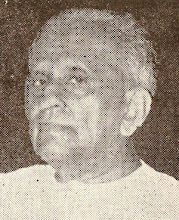
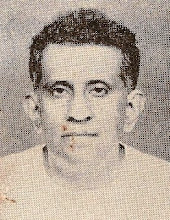



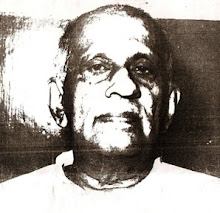
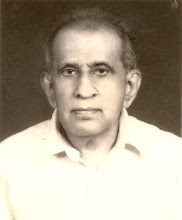
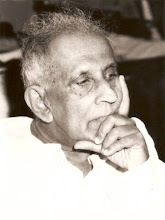.jpg)


